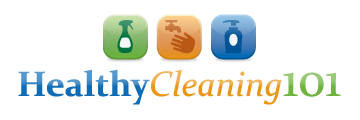
How to clean in your home
What surfaces should you disinfectant?
Surfaces frequently touched with hands are the most likely to be contaminated. These include doorknobs, handrails, light switches, cabinet handles, faucet handles, tables, countertops and electronics.
Precautionary statements are clearly and prominently displayed on the disinfectant’s label to ensure that Canadians have the information they need to use these products safely. When using a hard-surface disinfectant, only use the recommended amount and ensure that you have good ventilation. Product labels for authorized hard-surface disinfectants in Canada will display a DIN (Drug Identification Number).
Can cleaners or bleach also help me?
Although they do not claim to kill viruses such as COVID-19, cleaners can help limit the transfer of micro-organisms. For high-touch surfaces such as door handles, toys and phones, it is recommended cleaning with regular household cleaners or bleach.
You can dilute bleach, according to the instructions on the label or in a ratio of:
- 1 teaspoon (5 mL) per cup (250 mL) of water or
- 4 teaspoons (20 mL) per litre (1000 mL) of water
Check the bleach is 5 % sodium hypochlorite, to ensure a 0.1 % sodium hypochlorite solution.
Quick Tips
- In addition to routine cleaning, surfaces that are frequently touched with hands should be cleaned and disinfected more often, as well as when visibly dirty. Shared spaces such as kitchens and bathrooms should also be cleaned more often.
- Read the product label. To ensure consumers use the products appropriately, the label tells consumers about the products – how to use it, any specific hazards, precautionary text and disposal. For consumers, this is one of the most important features of the label. Consumers can also go to the product or brand websites for more, useful information.
- Don’t mix cleaning products. Mixing two cleaning products together or making your own “home brews” can be dangerous.
- Store Cleaning Products Properly. Keep cleaning products secure and out of the reach of children.
- Keep your provincial poison control centre number in an easily accessible location (e.g., fridge).
Hygiene – Washing your Hands and Hand Sanitizers
Proper hygiene can help reduce the risk of infection or spreading infection to others:
- wash your hands often with soap and water for at least 20 seconds, especially after using the washroom and when preparing food
- use alcohol-based hand sanitizers if soap and water are not available
- always supervise young children when using hand sanitizers, as ingesting even small amounts of sanitizer can be fatal
Phone Hygiene – Dialing Down the Dirt and Germs
Your mobile phone moves from your pocket or purse to your face. You give it to your child to play with, take it into the bathroom with you, and put it beside your bed at night! Germs travel with your phone wherever it goes. A recent study discovered mobile phones contain 10 times more bacteria than most toilet seats.
Let’s keep it clean and your hands too! Follow these tips
How do I know which disinfectant will kill the coronavirus?
Coronaviruses are enveloped viruses. This means they are one of the easiest types of viruses to kill with the appropriate disinfectant, when used according to the label directions. Health Canada has published a list of hard-surface disinfectants that are likely to be effective for use against coronavirus (COVID-19). Check it out regularly.
Other Important Precautions:
Coughing or sneezing:
- cough or sneeze into a tissue or the bend of your arm, not your hand
- dispose of any tissues you have used as soon as possible in a lined waste basket and wash your hands afterwards
- avoid touching your eyes, nose, or mouth with unwashed hands
Health Canada has published a list of hand sanitizers that are authorized for sale in Canada. Health Canada recommends using an authorized hand sanitizer that has an alcohol concentration of at least 60%. Product labels for authorized hand sanitizers will display either a Natural Product Number (NPN) or Drug Identification Number (DIN)
Should I make my own hand sanitizer?
For more information on soap and handwashing – check out: http://www.healthycleaning101.org/soaps-and-detergents/
For more information on disinfectants and sanitizers – check out: http://www.healthycleaning101.org/disinfectants-and-sanitizers/
